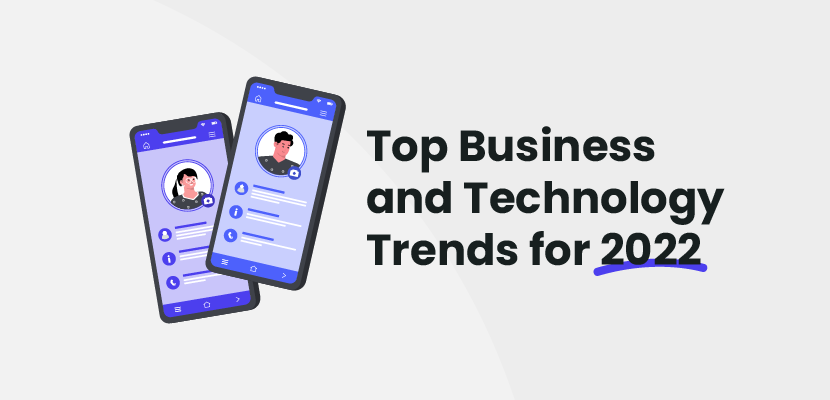8 questions to ask a software development company

Gareth Smith

One of the best strategies of getting your digital product off the ground quickly and efficiently is to outsource the development to an experienced software development company. Building a digital product like a mobile app or web-based application requires significant planning and investment, and while searching for the right company, you will notice there are thousands of companies to choose from. How can you truly decide which development partner is right for you?
Table of contents
- Have you developed applications with similar solution types to my product?
- Do you have in-house developers or do you outsource the work to other companies and freelancers?
- How will you ensure to stay within my budget?
- Will I own the Intellectual Property rights and when will I get the source code?
- What is your quality assurance process?
- What tech stack will be used for my project?
- Will I have access to the team throughout the development process?
- Why should I work with you guys?
- Get in touch with itCraft
8 Questions to ask before outsourcing your digital product development
Answers are only as good as the questions you ask, and if you ask poor questions, you are going to get poor answers. In this article, I have given you 8 questions you should ask your potential developer. The answers to which will help you decide if the company you are talking to is right for your project. I have also provided the answers from our perspective at itCraft to use as a benchmark.
Have you developed applications with similar solution types to my product?
The focus here is on the solution type. It is far more beneficial for you if the company has built products that offer the same solution you are looking for rather than just working in the same industry. Try and find out how the solutions in the application solved the business problems, and find similarities in your product.
At itCraft we have experience building Uber-like digital products which require a full system of multiple applications, both mobile and web-based as well as dashboards, admin panels and data analysis tools. The solution of creating complex algorithms based on the services providers location, availability, skillset, etc in conjunction with the users direct needs can be implemented not only in ride-sharing apps, but also telemed apps, delivery apps and home service type apps, or any other applications requiring booking, payment and connecting service providers to end users based on processing geolocation data.
Our case studies are available in the portfolio section.
Do you have in-house developers or do you outsource the work to other companies and freelancers?
There are some companies in the industry that will represent themselves as companies registered in the US, UK or Western Europe and their hourly rates are reflective of those countries, but they outsource the development to third-party companies or freelancers from other countries. This can cause a major risk to your project because the company you deal with doesn’t have complete control over the workforce used, and there can be inconsistencies in the procedure.
At itCraft, all our core technology services are provided by in-house developers located in Poland. By having everyone work for itCraft they work to our ISO9001 management processes, our ISO27001 security processes and are all held to the high standard which has made itCraft one of Europe’s leading digital product developers over a number of years. Even as COVID-19 continues to force us to work remotely, we are able to ensure that everyone on the team is supported, and continues to grow and develop.
How will you ensure to stay within my budget?
Beware if the answer is ‘a fixed price.’ It might seem like the safest choice for you but let’s consider why it could be the worst decision for your project. Most custom software development requires multiple developers to build multiple features over multiple months. No app is ever the same so it is impossible to know exactly how long it will take or how much it will cost.
If the development company offers a fixed price, they either have enough profit margin to offset any delays, or “scope creep” meaning you are overpaying for their service. Or, they will run out of budget at some point in the development process and compromise the quality of the development process, or fail to deliver at all. The worst case scenario is that you end up in a bitter legal dispute half way through the project which forces you to pay extra for things which are ‘outside the scope’ creating a very bad business relationship.
Look for a developer which has a clear rate card and understands the team lineup required and can estimate the length of time required based on similar solution types (refer question 1).
At itCraft, we believe the secret to building world-class software is a true agile approach and full transparency. For that reason we prefer to work under a time & material arrangement where you only pay for the time the team spends on your project with no ‘inflation’ of the price to cover “scope creep”. To have maximum control of your costs, we work in 2-week sprints and agree with the client on what will bring the highest value to the project. By focusing on the highest business value, our clients always have the best possible product in comparison to any time and budget restraints.
Our pricing is clear and available in the pricing section.
Will I own the Intellectual Property rights and when will I get the source code?
If you have had a billion dollar idea and decided to invest in building a digital product, the worst possible outcome is to get to a point where you realise ‘in the fineprint’ that you don’t actually own the source code.
Ensure that the development company has a clear process of transferring the Intellectual Property rights to you and that they have no legal rights of owning your source code. The process of regularly transferring the actual source code and ownership of it should be very clear.
Some companies will offer you favourable conditions in return for part ownership of the source code but you need to weigh up whether you want to give control of your source code to someone you do not really know. In some cases, this might be a good solution for your project but you should seek legal advice before going down this route.
At itCraft, our core business is solving the business problems of our clients with custom software solutions. For that reason we make it very clear in all our contracts the process of transferring the Intellectual Property rights for all source code as quickly and as practically as possible, depending on the project type.
What is your quality assurance process?
Some development companies may only have developers and don’t place a large emphasis on QA testing during the process. Many companies will offer testing services after the development has finished, but you should look for a company that treats testing as an integral part of the development process.
QA stands for Quality Assurance and if quality is to be assured, it is vital for QA engineers to understand the goals of the project from the very beginning so they can help create the right test scenarios and constantly perform tests throughout development.
At itCraft, our QA engineers are involved from the beginning of the project. They are responsible for creating test scenarios, providing testing throughout the development phase and ensuring the test scenarios and documentation is kept up-to-date as the product changes. Depending on the agreed strategy with the client, we provide comprehensive QA testing for backend and frontend, including manual and automated testing.
What tech stack will be used for my project?
This is kind of a “trick question” to see how the company treats technical recommendations. Of course, based on your high-level requirements, a reputable software development company will already have an idea of what technology could be used to create your digital product. But, beware of a company that will push a certain tech on you from the very beginning without understanding the business goals of your project, or knowing the ‘pain points’ of the target users.
One technology solution may be better suited to one project but not suitable for the next. Technology should always be secondary to the business model. For instance, if a company only has React Native mobile developers, then they will try to push React Native as the ‘best’ solution for your project, when in reality when video conferencing features or Bluetooth integrations are required a native approach may be better. It is important for you, at this stage, to see if they are open to different technologies, how they will identify the most suitable tech and whether they have developers in multiple different technologies.
At itCraft, every project begins with a workshop to analyze the business requirements, user requirements and system requirements. After these ‘deep-diving’ exercises over multiple days, our solution architect will make a technology recommendation based on the best technology and architecture to deliver the business goals of the client. For this reason we have skilled developers in numerous modern technologies and frameworks to ensure we can create the right solution, no matter what kind of project.
Will I have access to the team throughout the development process?
A common frustration for many people who decide to outsource their development is access to the team. Very often in custom software development, you need to ask questions, make changes, get updates and seek advice. This is almost impossible if you can’t speak to the team.
Not being able to speak to the team can be a result of a lack of language skills, teams scattered across multiple time zones or a lack of communication channels set up at the beginning of the development. If there is no regular contact with the team it can be difficult when things go wrong, and at a time when you need answers ‘radio silence’ is your worst enemy. Ensure there is a clear process for regular meetings, reports and access to the team.
At itCraft, we use a number of commercially available solutions designed to assist in the agile way of working. We use tools like JIRA for managing tasks, Slack with a dedicated project channel for day-to-day communication and Google Meet video conferencing for online meetings, ‘daily standup’ meetings, sprint planning and demo sessions. On top of that we use continuous integration to always make the latest version of the software available to our clients, and we provide regular reports.
Why should I work with you guys?
After getting answers to all the questions listed above, the final question to ask is “Why should I work with you guys?” If you are interviewing many reputable companies, the final decision of which company to work with can be really difficult. It may just come down to the rapport you have been able to build during the RFP process.
When they answer this question, listen out for things which differentiate their company to others you have spoken to. What you should be looking for is a partner that wants to work with you long-term and will become a crucial part of your business, can add value to your team and will help your business scale, so that in the future you can hire your own internal team to grow the product for years to come.
At itCraft, we become a business partner to our clients rather than just being a service provider, which is reflected in our perfect rating on Clutch (a recommendation platform for IT service companies). We believe that the reasons companies like Sodexo, Roche and DHL trust us is because we provide dedicated agile teams using the Scrum methodology of building software which provides them with the flexibility and transparency they need to build world-class software to meet their commercial objectives.
Get in touch with itCraft
When I first started my professional career, my first boss told me that “the silliest question is the one you don’t ask.” At the time, I didn’t really understand it but over the years I have realized that in business there are no such things as stupid questions. I hope the questions in this article help you as you start the process of choosing a vendor for your next digital product development. If you would like to discuss your project with someone at itCraft, please get in touch with us.




